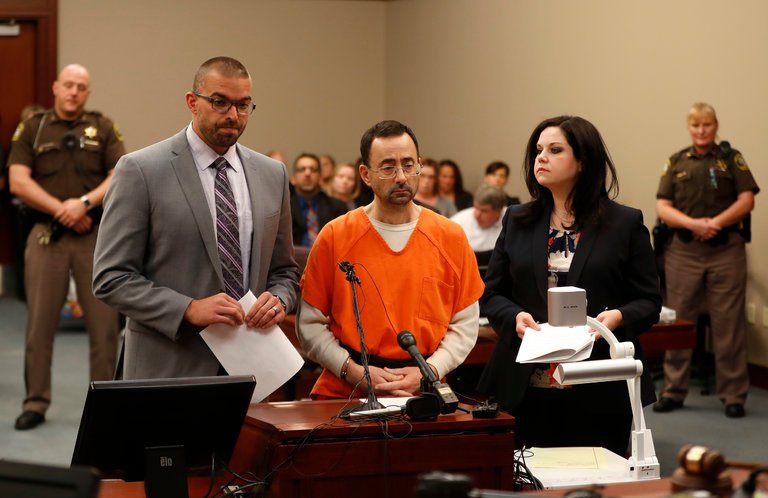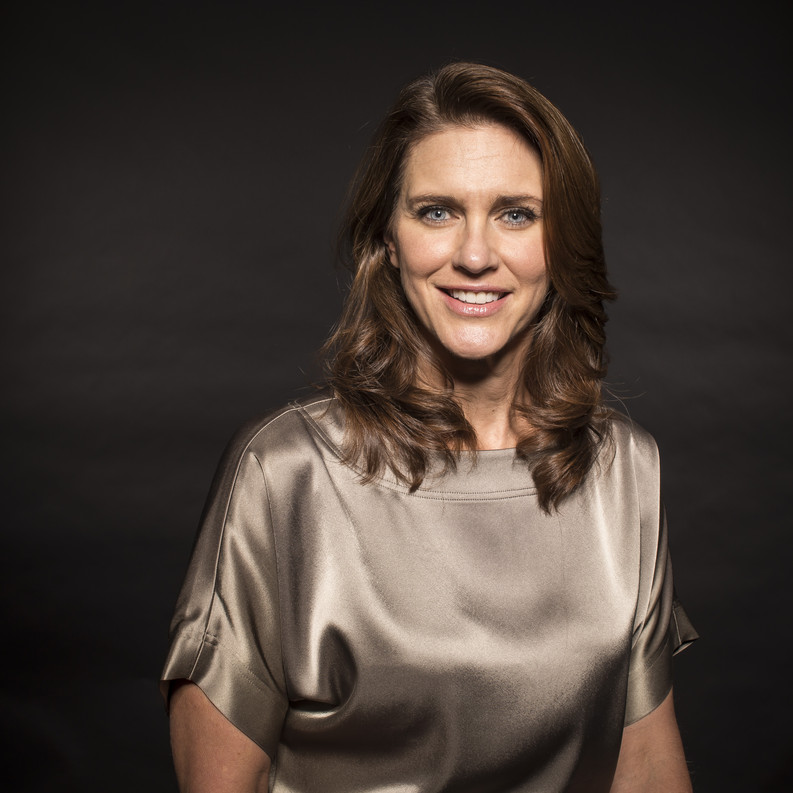
c/o nyt.com
Content warning: This article includes themes of sexual abuse and gender-based violence.
Nearly a year and a half ago, The Indianapolis Star published a story discussing sexual abuse accusations against Dr. Lawrence G. Nassar, a physician for USA Gymnastics. Now, over 150 women and girls have come forward to share their stories.
These stories come from athletes of all sports: gymnasts, rowers, dancers, swimmers, soccer, and volleyball players. Some were students at Michigan State University; others went on to join Team USA and win gold medals at the Olympics.
Nassar’s abuse traces back for nearly 20 years, much of it against minors as young as six years old.

c/o nyt.com
“My parents, who had my best interests at heart, will forever have to live with the fact that they continually brought their daughter to a sexual predator, and were in the room as he assaulted me,” said Marie Anderson, a swimmer treated by Nassar.
The recent hearings were not the only instances when these athletes came forward. For some, they had been trying to tell their stories for years; no one, including USA Gymnastics and Michigan State, would listen.
“You pretended to be on my side,” said Jamie Dantzscher, an American gymnast and Olympic medalist of the USA Gymnastics coaches. “But instead of reporting it, you used your power to manipulate me.”
Dantzscher’s accusations faced backlash from not only the USA Gymnastics team coaches, but also individuals in her private life.
“I was attacked on social media,” she said. “People didn’t believe me, even people I thought were my friends. They called me a liar, a whore, and even accused me of making all of this up just to get attention.”
This tendency to not believe women coming forward about sexual assault allows people like Nassar to commit crimes again and again. When claims are overlooked, experiences get trivialized.
During January’s hearings, Judge Rosemarie Aquilina of Michigan listened to every story, often responding to each one individually. These personal, even intimate comments, were deemed “unusual” and “uncommon” by legal experts. But what is the legal protocol when morality has been thrown out the window?
By the end of the hearings, Nassar had pleaded guilty to 10 counts of first-degree criminal sexual assault: seven in Ingham County, Mich., and three counts in Eaton County, Mich. Aquilina has sentenced Nassar up to 175 years in prison. He is currently 54 years old.
“I just signed your death warrant,” Aquilina said to him upon his sentencing.
While the case may be closed, the issue of sexual assault does not end here. This is not just a gymnastics or sports problem. This is happening behind closed doors, in locker rooms, in offices, on numerous levels. Allowing and empowering these women to speak up is just the first step.
What these 150-plus women and girls show, and have been trying to show for years, is that positional power dynamics play a large role in sexual assault. Whether it’s the actress trying to get big roles in a male-dominated Hollywood world, or a young athlete trying to avoid injury, those in power are willing to use it against those who lack it.
It is these disempowered victims that are gaining strength now as they reclaim their stories and bodies. But even these instances of unity are overshadowed by life-long impacts of sexual assault.
For some of the athletes, they felt their career goals could not have been achieved without enduring Nassar’s abuse.
“I had a dream to go to the Olympics,” two-time Olympic medalist McKayla Maroney said. “And the things that I had to endure to get there were unnecessary and disgusting.”
Fellow Olympian and medalist Jordyn Wieber echoed Maroney’s sentiment.
“I thought that training for the Olympics would be the hardest thing that I would ever have to do,” Wieber said. “But, in fact, the hardest thing I would ever have to do is process that I am a victim of Larry Nassar.”
How can women be expected to build their careers and find success if they know there are barriers like these along the way? Whether it be in a doctor’s office, newsroom, backstage, or even in their own bed, women are often up against men in power who use it to abuse, and even excuse, discriminatory action.
Yet as sexual assault scars the names of many otherwise respected, even glorified men, men in the workplace are focusing on whether something they’ve done in the past could put their name in the next headline. Owen Cunningham, a director of a San Francisco design firm, spoke to The New York Times regarding his worries about past behavior.
“Was I ever taking advantage of any meager power I had?” Cunningham said. “You start to wonder.”
Some men believe the only way to avoid being accused of anything is to avoid one-on-one interactions with women completely. Instead of simply not abusing their power, they’re following “The Pence rule,” named for Vice President Mike Pence. In 2002, Pence claimed that he never eats alone with a woman other than his wife, Karen.
This fear, however, can have negative effects on women and their careers. As men exercise more caution and limit interactions with women, they potentially exclude them from important career-building conversations. Establishing honest, professional relationships with those in the workplace can attribute to career advancement. In fact, research shows that sponsorship is an important component in women’s career success.
So how do we work to create change that benefits all?
Instead of shying away from the issue and avoiding women altogether, we need to stay informed and learn about consent to foster professional, appropriate relationships. It is time men (and all individuals) stop being afraid of interacting with others because they’re worried they’ll do something wrong. Their fear isolates others, it doesn’t empower them.
We must work toward education. Jonathan Segel, a lawyer on the United States Equal Employment Opportunity Commission’s task force, works to educate those in the workplace about appropriate behavior. Using a program called Safe Mentoring, he runs anti-harassment training: teaching men how to mentor women without harassing them.
If we can have open discussions about appropriate behavior and provide education for those who need it, maybe we can finally imagine a world where sexual harassment and assault aren’t a societal norm.
That may be wishful thinking, but there’s no denying the power that manifests when we listen to those who have been wronged and learn from them.
“I have both power and a voice, and I am only beginning to just use them,” Olympian Aly Raisman said. “All these brave women have power, and we will use our voices to make sure you get what you deserve: A life of suffering spent replaying the words delivered by this powerful army of survivors.”
Zoë Kaplan can be reached at zkaplan@wesleyan.edu.